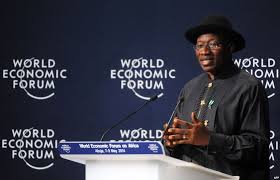Nigeria has made several futile attempts to use Public Private Partnership to build infrastructure that it so badly need. But each of the attempts has failed to achieve the desired goal. The Lagos Ibadan Express way, the Local Wing of the Murtala Mohammed airport and Lagos Ekpe Express Road are a few of such attempts.
These projects failed to deliver on their mandate because parties to the partnership did not understand the full implication of what they were going into. Around the World today, Public Private Partnership is being used to build first class infrastructure that governments have no resources to finance. For a long while now the international community has come to realize that the world’s huge infrastructure demand cannot be met by the public sector alone; private investors and operators are needed, but they worry about political and regulatory risk. Today, political and regulatory risk takes many forms – from community protests to tightened regulations and corruption, and is relevant in both developing and industrialised countries”.
Last week The World Economic Forum spelt out 25 international best practices from different infrastructure sectors that could help Nigeria and other developing countries attract private sector investment in infrastructure development. The report which was launched in New York last Wednesday by the forum was prepared in collaboration with The Boston Consulting Group. It presents a risk-mitigation framework consisting of actionable measures to be taken by the various parties to a Public Private Partnership PPP; some of the actions highlighted in the report could be taken by the private sector, some by the public sector and some by the two sectors jointly. For instance Investors and operators could seek political-risk insurance and companies could deter government intervention by carefully crafting ownership and commercial structures. On the public-sector side, the national government such as Nigeria could provide investors with protection by offering constitutional guarantees by ensuring fair and fast dispute-resolution mechanisms, and by enforcing robust anti-corruption policies.
The new report in the World Economic Forum’s Infrastructure Knowledge Series outlines actionable risk-mitigation measures to be taken by the public and private sectors. According to the report “Political and regulatory risk is one of the major constraints on infrastructure investment decisions. It takes different forms over an infrastructure project’s life cycle, from delayed construction permits and community protests to breach of contract, tightened regulations and the non-renewal of licences. In addition, some broader risks apply throughout the life cycle – changes to taxation laws, for instance, and endemic corruption.
Unless we agree on a common language to categorise the specific types of political and regulatory risks, it will be impossible to raise awareness of the opportunity to invest in the infrastructure sector. The framework developed for risk mitigation puts in evidence the main levers that can be adjusted while eliciting the white spaces where multilateral development banks, commercial banks and insurers can create much-needed risk-mitigation instruments.
The report summarises the impact that the different political and regulatory risk factors have on projects, and cites a wide range of examples that help explain and underpin the need for risk-mitigation tools. Importantly, the report confirms that these types of risks are encountered across a wide range of geographies; this is not a developed versus emerging economies issue.”
In order for investors to confidently increase their investments in infrastructure, they need to see transparent and comparable data and processes, as well as predictable legal and regulatory frameworks that can withstand political risk,” said Douglas L. Peterson, President and Chief Executive Officer of McGraw Hill Financial, and Co-Chair of the Strategic Infrastructure Initiative.
Reducing these risks can help unlock the private capital needed to bridge the infrastructure financing gap
The world has more to lose than ever before from massive failure of critical infrastructure. To improve efficiency and lower cost, various systems have been allowed to become hyperdependent on one another. The failure of one weak link –whether from natural disaster, human error or terrorism – can create ripple effects across multiple systems and over wide geographical areas.
The challenge is financial, and incentives are misaligned. In the United States, over 80% of infrastructure is owned or managed by private sector firms, which are not responsible for the negative externalities that failure of their part of the infrastructure could have elsewhere. To increase investment in infrastructure, a coordinated, global, long-term and multistakeholder approach is required. Upgrading infrastructure is essential, in recognition that resilient infrastructure has become the backbone of a competitive economy”. Nigeria policy makers have a lot to learn from the lessons exposed in the report. Nigeria certainly need private investors capital to finance the huge infrastructural deficit in the country.

